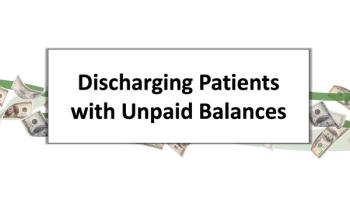
Health care employers have the obligation to protect their employees and their patients, while also complying with applicable state and federal laws.

Ericka L. Adler, JD, LLM has practiced in the area of regulatory and transactional healthcare law for more than 20 years. She represents physicians and other healthcare providers across the country in their day-to-day legal needs, including contract negotiations, sale transactions, and complex joint ventures. She also works with providers on a wide variety of compliance issues such as Stark Law, Anti-Kickback Statute, and HIPAA. Ericka has been writing for Physicians Practice since 2011.

Health care employers have the obligation to protect their employees and their patients, while also complying with applicable state and federal laws.

Although it’s often easier and faster to provide medical care to friends and family, physicians should learn to say “no” more often.

A practice’s entire business depends on a billing company that can properly bill and collect for the practice’s services.

Here’s how to make sure your practice is in compliance with Stark regulation clarifications taking effect January 1st, 2022.

Though recent survey data suggests fewer physicians are choosing private practice, the data may be misleading. Hospital or private practice employment should only be chosen after carefully weighing the pros and cons of each.

For those looking for a new job, the following are some key considerations that might limit potential for burnout.

A physician asks whether he can legally refuse treatment to a patient with an unpaid balance. Here are five legal considerations.

While a great way to market your practice’s name, brand, and showcase providers, think through these legal and compliance issues first.

DHS profit distribution compliance may require modification of physician contracts, compensation policies, and other documentation within the practice

If you engage in these behaviors, closely review your relationships with such companies, as well as the types of events at which you have been speaking.

Physician practices that are engaged in any purchase or sale of stock or equity must be sure to comply with the requirements tied to funds that were loaned or granted during COVID.

If one of the physicians in your practice is switching to part-time status, numerous issues will have to be addressed first.

Working from home can lead to casual conduct, posing compliance risks for your organization.

Ensure compliance with state and federal laws before offering wellness services to remedy COVID complications.

Employers should continue to enforce all recommended COVID precautions within the practice and remain vigilant of changes in state and federal laws.

Recommendations for every practice to consider.

Revise contracts now with practical solutions for potential disaster that could occur in the future.

Funds received can only be used for expenses or lost revenue attributable to the coronavirus

Signed into law March 18th, will go into effect April 1st.

Negotiate before the contract is signed.

Check in with counsel and stay on top of what your state and the federal government may be doing to assist medical practices and other small businesses to survive.

The pandemic will ultimately unveil shortcomings in our organizations and highlight opportunities for improvement.

What you need to consider before offering spa services to your patients.

New proposal will reimburse NPs, PAs, and physicians at the same rate regardless of clinical training.

Plans you can prepare, and risks to avoid, this year.

New rule will add scrutiny to practices to disclose affiliations they have with providers ruled as 'bad actors' by CMS.

Compensation formulas based on productivity can become a major source of friction between physician and employer when termination occurs

If you work for a practice that is about to be acquired, it’s important to consider all your options

Mothers have a right to breastfeed in public - and in your practice, so find a way to make mothers, other patients and staff comfortable.

Most physician compensation structures must comply with Stark laws. The danger is that practices may be in violation without realizing it, putting themselves at risk of fines and exclusion from Medicare and Medicaid.

Published: December 21st 2020 | Updated:

Published: July 21st 2020 | Updated:

Published: March 10th 2021 | Updated:

Published: May 3rd 2021 | Updated:

Published: June 25th 2020 | Updated:

Published: July 17th 2013 | Updated: